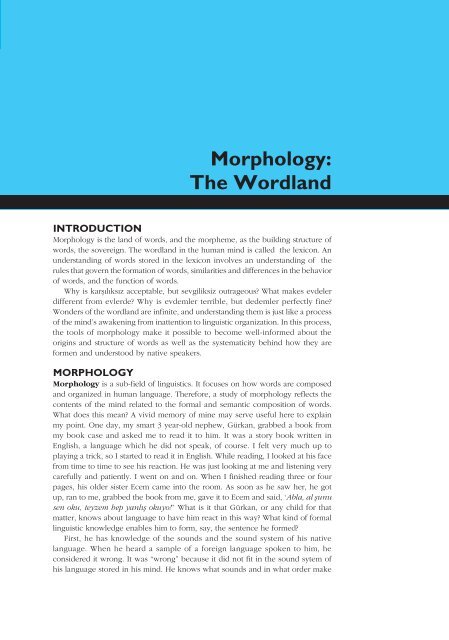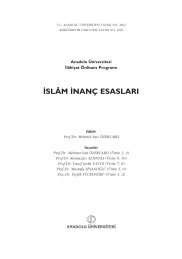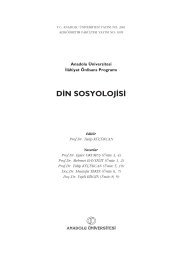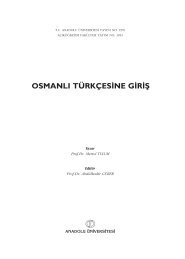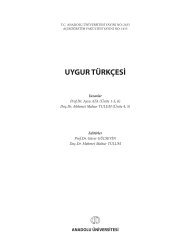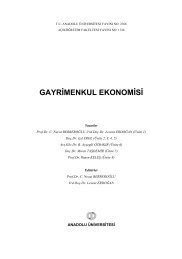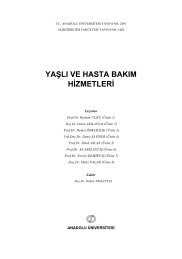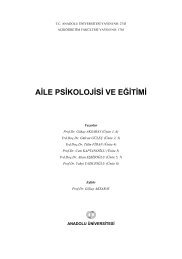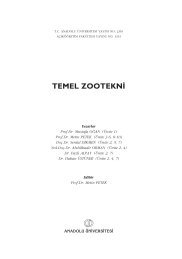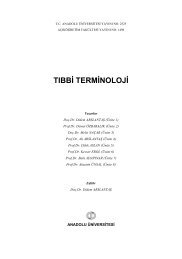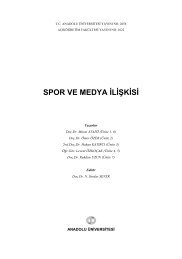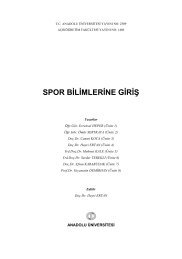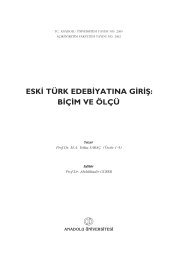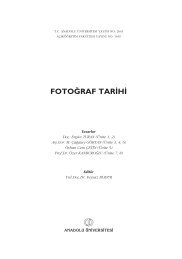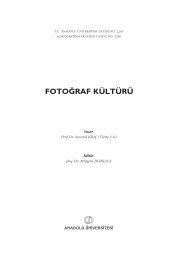turkish phonology and morphology (türkçe ses ve b‹ç‹mb‹lg‹s‹)
turkish phonology and morphology (türkçe ses ve b‹ç‹mb‹lg‹s‹)
turkish phonology and morphology (türkçe ses ve b‹ç‹mb‹lg‹s‹)
Create successful ePaper yourself
Turn your PDF publications into a flip-book with our unique Google optimized e-Paper software.
Morphology:<br />
The Wordl<strong>and</strong><br />
INTRODUCTION<br />
Morphology is the l<strong>and</strong> of words, <strong>and</strong> the morpheme, as the building structure of<br />
words, the so<strong>ve</strong>reign. The wordl<strong>and</strong> in the human mind is called the lexicon. An<br />
underst<strong>and</strong>ing of words stored in the lexicon invol<strong>ve</strong>s an underst<strong>and</strong>ing of the<br />
rules that go<strong>ve</strong>rn the formation of words, similarities <strong>and</strong> differences in the behavior<br />
of words, <strong>and</strong> the function of words.<br />
Why is karfl›l›ks›z acceptable, but sevgiliksiz outrageous? What makes evdeler<br />
different from evlerde? Why is evdemler terrible, but dedemler perfectly fine?<br />
Wonders of the wordl<strong>and</strong> are infinite, <strong>and</strong> underst<strong>and</strong>ing them is just like a process<br />
of the mind’s awakening from inattention to linguistic organization. In this process,<br />
the tools of <strong>morphology</strong> make it possible to become well-informed about the<br />
origins <strong>and</strong> structure of words as well as the systematicity behind how they are<br />
formen <strong>and</strong> understood by nati<strong>ve</strong> speakers.<br />
MORPHOLOGY<br />
Morphology is a sub-field of linguistics. It focu<strong>ses</strong> on how words are composed<br />
<strong>and</strong> organized in human language. Therefore, a study of <strong>morphology</strong> reflects the<br />
contents of the mind related to the formal <strong>and</strong> semantic composition of words.<br />
What does this mean? A vivid memory of mine may ser<strong>ve</strong> useful here to explain<br />
my point. One day, my smart 3 year-old nephew, Gürkan, grabbed a book from<br />
my book case <strong>and</strong> asked me to read it to him. It was a story book written in<br />
English, a language which he did not speak, of course. I felt <strong>ve</strong>ry much up to<br />
playing a trick, so I started to read it in English. While reading, I looked at his face<br />
from time to time to see his reaction. He was just looking at me <strong>and</strong> listening <strong>ve</strong>ry<br />
carefully <strong>and</strong> patiently. I went on <strong>and</strong> on. When I finished reading three or four<br />
pages, his older sister Ecem came into the room. As soon as he saw her, he got<br />
up, ran to me, grabbed the book from me, ga<strong>ve</strong> it to Ecem <strong>and</strong> said, ‘Abla, al flunu<br />
sen oku, teyzem hep yanl›fl okuyo!’’ What is it that Gürkan, or any child for that<br />
matter, knows about language to ha<strong>ve</strong> him react in this way? What kind of formal<br />
linguistic knowledge enables him to form, say, the sentence he formed?<br />
First, he has knowledge of the sounds <strong>and</strong> the sound system of his nati<strong>ve</strong><br />
language. When he heard a sample of a foreign language spoken to him, he<br />
considered it wrong. It was “wrong” because it did not fit in the sound sytem of<br />
his language stored in his mind. He knows what sounds <strong>and</strong> in what order make


